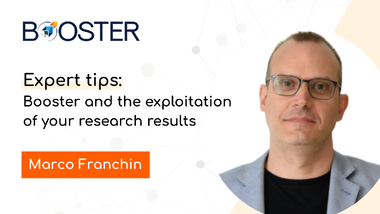Not one, not two, but four HRB services for cement factory retrofitters CLEANKER
21/04/2021
Having already completed Modules A and C of the Portfolio Dissemination & Exploitation Strategy services, they are midway through the Business Plan Development service and have applied for a fourth service, Module B of the Portfolio Dissemination & Exploitation Strategy service.
CLEANKER’s coordinator, Dr Martina Fantini of Laboratory of Energy and Environment Piacenza (LEAP), first came into contact with META’s exploitation services in 2019, when another project she was involved in, called LEAP, took part in a SSERR service (this service is no longer available).
The CLEANKER project focuses its efforts on making cement production – traditionally a heavy emitter of greenhouse gases – more ecologically friendly. To that end, the project has developed a cost-effective retrofit solution – using a calcium looping system that can achieve up to 90% carbon capture without the need for replacing the heavy-duty rotary kilns that are integral parts of any cement factory.
“This is the first time – as far as I know – that the technology will be proven in an operating cement plant,” says Dr Fantini. “It can be implemented – totally or partially – in all the existing cement plants in the world.”
Technologically, the project is already showing great results.
When it came to carrying out their dissemination and exploitation activities, however, CLEANKER decided that getting involved with Horizon Results Booster would enable them to see beyond the “end of the project” and achieve greater impact.
In Module “A” of the Portfolio Dissemination & Exploitation Strategy service, CLEANKER joined a dedicated project group made up of European researchers working on similar topics – the idea was to share knowledge, ensure that there was no accidental duplication of work and exploring possible sinergies.
In this module, CLEANKER engages in knowledge exchange – sharing best practices across borders. For example, Dr Fantini proposes to share her insights on societal acceptance and financial mechanisms with other projects, and they can learn from CLEANKER’s experience.
A great advantage of these “project groups” is that they also forge connections which can lead to new innovative future projects.
“Our goal is to enlarge that network to see if we can apply for new projects with a larger group,” says Dr Fantini. “Since the beginning of CLEANKER I really saw that synergies between projects was possible. This is why I wanted to try this service. To see if we could also make synergies with the results of other projects related to CO2 capture.”
CLEANKER also enrolled in Module “C” of the Portfolio Dissemination & Exploitation Strategy service. Here, experts reviewed the key exploitable results of the project and taught them how to consider the long-term impact of CLEANKER, past the project’s end.
“This service is very useful – it gave us a systematic approach [to exploitation]. They asked us questions that seem easy, but are not so obvious – like what is the problem, what are the alternatives, what are the existing solutions, what is the Unique Selling Point of our technologies,” she said. “I think this systematic approach is helping us a lot both within the project in the sense of the deliverables but also for the future.”
She went on to explain that Horizon Results Booster opened their eyes to other possibilities besides just moving on to the next project grant once CLEANKER finished.
“We realised that even if it’s a TRL 7 (which means that we still need some steps to reach the market) there is not only the way of new projects for scale up, but also to already contact stakeholders that could be interested in investing in our technology. Normally for universities or research centres it’s quite obvious to go on with research and funded projects. For industry, it’s obvious to invest in the technology. These two actors have to coordinate.”
Currently, CLEANKER is working on the Business Plan Development service. The BPD service is providing support to CLEANKER, based on the maturity level of the Key Exploitable Result (KER) identified in Module C. For this KER, the experts are interacting with CLEANKER to review the draft business plan and provide recommendations for its finalisation, including the preparation of an implementation roadmap. A result has been identified which has been just characterised, but not fully developed into a draft business plan. For this one, the experts are supporting CLEANKER to identify the relevant information that needs to be collected and validated for each of the main parts of the business plan, and providing recommendations on the next steps.
Participants in Horizon Results Booster services have to put in the effort, as Dr Fantini points out: “We have to work for this service - they give us homework and I have a deadline on Monday!”



_small.webp)

(8)_small.webp)
_small.jpg)